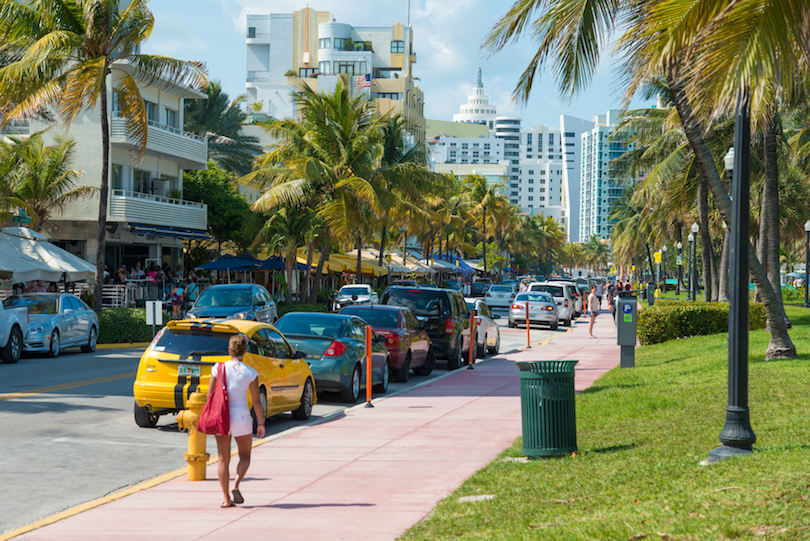Are you just retiring or looking at retiring soon and have considered Thailand as a perfect retirement destination?
This article is geared to educate you on 21 reasons not to retire in Thailand.
Retirement sums up decades of hard work and sacrifice. It is that moment you can finally close your office door for the last time while opening up to a new chapter in life.
This new chapter for many includes the fantasy dreams of palm beaches, taking in exotic cuisine, and generally having a more relaxed pace of life.
Thailand, with its beautiful landscapes, affordable cost of living, and warm-hearted locals, often appears as the reality of these dreams. It’s no wonder Thailand frequently finds itself atop the list of favored retirement destinations.
However, before you head to the Land of this seemingly perfect choice, it’s essential to consider and cover every ground possible.
Let’s explore these factors that may cause you as you plan your retirement destination.
21 Reasons Not To Retire in Thailand
1. Language Barriers
Imagine wandering through a bustling local market, enticed by the vibrant colors of exotic fruits and the aromatic thrills of street food sizzling on open grills. You’re eager to ask about the ingredients, the flavors, and the stories behind these delectable dishes.
But as you approach the vendor, excitement gives way to frustration. You fumble for words, attempting to communicate your curiosity and preferences, only to be met with puzzled looks and a language you can barely decipher.
This scenario highlights a significant obstacle: you must be fluent in Thai to avoid communication challenges, especially in rural areas where English proficiency can be scarce.
Learning basic phrases can get you by in some tourist areas, but for a richer and more meaningful experience, you’ll need a deeper understanding of the language.
It’s not merely about convenience but forging connections, immersing yourself in the culture, and truly becoming a community.
The language barrier is usually a big obstacle for retirees, hence the emphasis on the importance of language skills when considering Thailand as a retirement destination.
2. Legal Restrictions
In Thailand, retirees typically apply for a Non-Immigrant O-A Visa, designed specifically for those aged 50 and above who wish to retire. Sounds simple.? Not quite.
The application process can be mired in paperwork, interviews, and financial documentation. You may be wading through various forms, affidavits, and bank statements. For some, the process can be a nerve-wracking experience akin to solving an intricate puzzle.
Once you’ve obtained your retirement visa, it’s not a holy grail as there’s the matter of renewing it yearly. This means enduring another round of paperwork and demonstrating that you meet the financial requirements.
This can feel like a recurring headache for retirees accustomed to the simplicity of automatic pension deposits in their home countries.
Thailand’s retirement visa system tends to change. Regulations can shift seemingly overnight, causing retirees to adapt to new requirements, financial thresholds, and application procedures.
Keeping track of these policy changes can feel like a constant battle, adding an element of uncertainty to your retirement plans.
3. Cultural Differences
Thai people are renowned for their hospitality, including but not limited to going out of their way to make you feel welcome.
As a retiree, this creates a wonderfully inviting atmosphere, and you’ll likely find yourself embraced by a community that genuinely cares about your well-being.
However, a complex web of social etiquette and hierarchies lies beneath the friendly exterior. Respect is paramount in Thai culture, particularly for elders and authority figures.
While Thais are generally forgiving of cultural faux pas from foreigners, understanding and adhering to these unwritten rules can help you navigate social situations more smoothly.
Thailand is predominantly Buddhist, and this spiritual aspect permeates daily life.
Temples, monks, and spirituality are intertwined with cultural practices. For retirees, this offers an opportunity for introspection and a deeper exploration of one’s spirituality. Yet, it also means respecting religious customs and practices that may differ significantly from yours.
4. Climate Concerns
While there’s much to love about Thailand’s tropical climate, it’s crucial to prepare for the sizzling reality of the hot season, which may not be everyone’s cup of iced tea.
Thailand’s tropical climate means you’ll be basking in the sun’s warm embrace for a substantial part of the year.
For many, this is a dream come true, offering an escape from the chills of winter back home. It’s the ideal setting for lazy beach days, vibrant outdoor markets, and exploration of exotic landscapes.
The hot season is from March to May. This is when the sun is in full rage, with the scorching temperatures not suitable for everyone.
5. Traffic and Pollution Saga
Setting out to explore Bangkok’s vibrant markets, cultural treasures, and mouth-watering street food but finding yourself deep in seemingly never-ending traffic can be saddening.
You are about to face this in Thailand and more as Bangkok’s traffic jams are legendary, and even short commutes can become time-consuming.
Rush hours in Bangkok can test your patience, with bumper-to-bumper traffic becoming a part of daily life, while navigating the city can be perplexing, especially for newcomers.
Bangkok, like many bustling metropolises, faces challenges in maintaining air quality. In contrast, Thailand’s vibrant culture and urban adventures beckon, and smog can sometimes cloud the skies.
6. Safety Issues
Petty crime, such as pickpocketing or bag snatching, can occur in bustling tourist areas, markets, and public transportation hubs.
While this is a concern, it’s a challenge that retirees, like locals and tourists alike, need to be vigilant about. Simple precautions like using anti-theft bags, securing your belongings, and avoiding flashing expensive items can deter potential thieves.
Scams are unfortunate in many tourist destinations, and Thailand is no exception. From overpriced tuk-tuk rides to dubious gem shops and fake tour operators.
Retirees need to stay informed and exercise caution when dealing with unfamiliar businesses or individuals, which generally is tasking having to look over your shoulders all the time.
7. Health Care
Thailand’s official language is Thai, and while many medical professionals in urban areas speak English, language barriers can still pose challenges, particularly in rural regions.
Effective communication with healthcare providers is crucial for accurate diagnoses and treatment plans.
Retirees who need to improve in Thai may need help navigating the healthcare system and conveying their medical needs.
The administrative procedures in Thai hospitals and clinics may differ significantly from those in Western countries. Paperwork can be more extensive, and the administrative process may feel less streamlined.
Retirees will likely encounter challenges in understanding and completing necessary documentation for medical procedures.
While Thailand offers a wide range of medications, some prescription drugs that are readily available in Western countries may be less accessible in Thailand.
Retirees with chronic medical conditions requiring specific medications should research availability in advance and ensure they can obtain the necessary treatments.
8. Pension Issues
Retirees often rely on pensions as a significant source of income during their inactive years.
However, accessing your pension while residing in Thailand can be very tasking with the Tax Treaties and Withholding, Currency exchange, Documentation, and Verification processes.
Retirees may need extensive documentation to prove their eligibility for pension payments abroad.
This paperwork can be burdensome and require ongoing verification, creating administrative hurdles.
Opening and maintaining a bank account in Thailand, necessary for receiving pension payments, may involve administrative complexities and require substantial initial deposits.
9. Property Ownership
By Thai law, foreigners are generally prohibited from owning land in their name. This restriction applies to both retirees and expatriates.
Awareness of property-related taxes and fees, such as transfer fees, stamp duty, and annual property taxes, makes it even more discouraging as these fees can be very high.
With its ever-evolving property regulation, it is hard to keep track of all these as it was separate from the plan for retiring.
10. Cultural Setbacks
As you retire and are about to settle into your new life in Thailand, you will certainly encounter moments of cultural isolation.
Unless you are fluent in Thai, which isn’t always the case as it isn’t such a common language to be learned, communicating beyond necessities will be challenging, thus limiting your ability to connect on a deeper level with locals.
Building a social network in a new culture can take time. You will feel isolated as you seek like-minded friends and integrate into the local community.
The nuances of Thai customs and traditions aren’t left out as they can be vast and unfamiliar, potentially leading to misunderstandings or discomfort.
11. Very Minimal Work Opportunities
Retirement is typically viewed as a time to relax, explore, and enjoy life without the demands of full-time work or business ownership.
Choosing to work or start a business may detract from the leisure and exploration that retirees often seek during their golden years.
Navigating the Thai business culture and regulatory environment can be complex for retirees. Understanding local customs, business practices, and legal requirements is crucial for success.
This learning curve can be steep and time-consuming.
12. Respect for the Monarchy
Thailand’s lese-majeste laws are among the world’s strictest, making it a criminal offense to criticize or defame the monarchy.
Penalties can include severe fines and lengthy prison sentences. You must be cautious about what you say or share publicly or online, as unintentional violations can have serious consequences.
Thai people hold their monarchy in the highest regard. Public displays of respect, such as standing when the royal anthem is played before movies, are expected.
While you may be accustomed to open discussions about political matters, it’s essential to approach discussions about the monarchy with cultural sensitivity in Thailand.
Thai people do not publicly engage in critical or negative discussions about the monarchy.
This is a lot, but it is certainly one of the reasons not to retire in Thailand.
13. Economic Instability
Thailand’s currency, the Thai baht, can be subject to fluctuations in exchange rates. For retirees receiving pensions or income in a foreign currency, this volatility can impact their purchasing power and financial stability.
A sudden strengthening of the baht can make retired life more expensive for foreigners.
Like any country, Thailand is not immune to economic downturns.
Periods of economic instability, such as recessions or financial crises, can impact various aspects of retired life, including the cost of living, property values, and investment portfolios.
Inflation can erode the purchasing power of retirees’ savings over time.
Political instability in Thailand has, at times, led to economic uncertainty.
Retirees may find it challenging to predict how political developments could affect the economy and their financial well-being.
14. Natural Disaster
Thailand experiences annual monsoon rains, which can lead to flooding in some areas. Flooding can disrupt daily life, damage property, and impact transportation.
Tropical illnesses, tsunamis, earthquakes, and storms aren’t always pleasant experiences, and you wouldn’t want to put yourself out there for these eventualities to occur, as everything earned could be lost in a twinkle.
This is one important factor to note as it can be a very depressing one should this occur, and in most cases, the possibility of this happening is usually high.
15. Low Humanity Standard
The emotional range of Thai people often appears limited and shallow, but this isn’t due to any inherent traits. Instead, it’s a product of the social environment and cultural norms in which they are raised.
Thai society does not readily encourage the broad expression of deep emotions.
It’s essential to understand that this limitation isn’t because Thai people are inherently less emotional or lack specific genes; rather, it results from cultural conditioning.
Even within family units, where some argue there is more room for emotional expression, societal norms, and politeness standards still exert influence.
Family members lead relatively separate lives within the same household, avoiding confrontations and maintaining politeness in social interactions.
16. Costs of Visa
To meet the financial requirements for a Retirement Visa, retirees must either have a monthly income of at least 65,000 Thai Baht (approximately USD 1,960) or a bank account in Thailand with a minimum balance of 800,000 Thai Baht (around USD 24,000).
This financial requirement may involve initial setup costs and maintaining the required balance.
Suppose you plan to leave Thailand temporarily and return without voiding your visa. In that case, you’ll need to obtain a re-entry permit, which costs approximately 3,800 Thai Baht (around USD 114) for a 114-entry permit and 1,900 Thai Baht (approximately USD 57) for a multiple-entry permit.
Retirees with the OA Visa must extend their visa annually at the nearest Immigration office in Thailand. The extension fee is typically around 1,900 Thai Baht (approximately USD 57).
17. The “Farang” Status
No matter how long you reside in Thailand, locals may always perceive you as a foreigner. This is a positive aspect, and your ability to build meaningful connections and enjoy your time in Thailand depends largely on your character and interactions, which will be limited.
Initially, this might not be a concern, but you may notice that some locals still view you as an outsider or treat you differently, even after years of interaction.
18. Corruption
Weak governance, an inefficient judicial system, and corruption are hidden factors that affect everyday life in Thailand, even if they may not be immediately apparent to newcomers. These issues have far-reaching consequences that become evident when facing certain situations.
Incompetent governance and corruption can divert funds from essential infrastructure and services like clean water, proper sewage treatment, and environmental regulations.
As a result, residents and visitors may encounter issues with water quality and air pollution.
Judicial System:
The judicial system’s inefficiency becomes apparent when individuals face legal challenges, such as property disputes, business conflicts, or personal issues.
Thai courts may favor locals over foreigners, and justice can be elusive, particularly for those with substantial resources or connections.
19. Education
For retirees with children and perhaps grandchildren, navigating the fees, school reputation, curriculum, and enrollment requirements can be very hectic, especially the education standard, as it is completely different from what you are used to.
The language barrier is also a big thing to consider. Kids could be constantly bullied, and blending into a new environment can be traumatic, depending on the situation.
Also, Thailand must improve its quality of education, from kindergarten to university. This is evident not only through international rankings but also in everyday interactions with Thai people.
Conversations need more depth, work quality varies, and Thai society has a pervasive sense of shallowness.
20. Exchange Rates
One key financial aspect that retirees must consider is exchange rates, as they can profoundly impact your retirement finances.
When you retire in Thailand but have financial assets or income denominated in a different currency, you must exchange your funds into Thai Baht (THB) to cover expenses. Exchange rates determine how much THB you’ll receive for each unit of your home currency.
Exchange rates constantly fluctuate due to economic conditions, political events, and market sentiment.
These fluctuations can significantly affect the value of your retirement income or savings.
The exchange rate can substantially impact your retirement finances in Thailand.
If your home currency strengthens against the THB, your purchasing power in Thailand increases, allowing you to afford more. Conversely, a weaker home currency can reduce purchasing power and strain your budget.
21. Distance from home
For many Westerners, one of the most exciting yet challenging aspects of retiring in Thailand is the significant distance from their home countries.
Being far from loved ones can be emotionally challenging. Celebrating special occasions, dealing with family emergencies, and maintaining relationships across time zones can be demanding.
Adapting to a new culture and language can be both rewarding and challenging. Retirees will likely experience culture shock and homesickness.
Frequent long-haul flights to visit home can be tiring, especially as retirees age. The cost and time required for travel should be factored into retirement plans.
FAQs
1. How complicated is the Visa process for retirees?
Thailand has stringent visa requirements for retirees, and navigating the bureaucracy can be complex. Visa rules may also change periodically, so staying updated is important.
2. How does the cost of living compare to my home country?
The cost of living in Thailand can be significantly lower than in many Western countries, but it can vary depending on your lifestyle and location.
3. Is there a limited range of job opportunities for Retirees?
Yes, for retirees looking to work or start a business, there may be restrictions as a foreigner, and job opportunities can be limited.
Conclusion
While Thailand offers many attractions, retirees should carefully assess these factors and plan accordingly.
By doing so, retirees can make informed decisions and embark on a fulfilling retirement journey in the Land of Smiles with a deeper understanding of its charms and complexities.
This article details important reasons to refrain from retiring in Thailand as it may negatively impact you. Let us know in the comments which stood out for you. Cheers.


